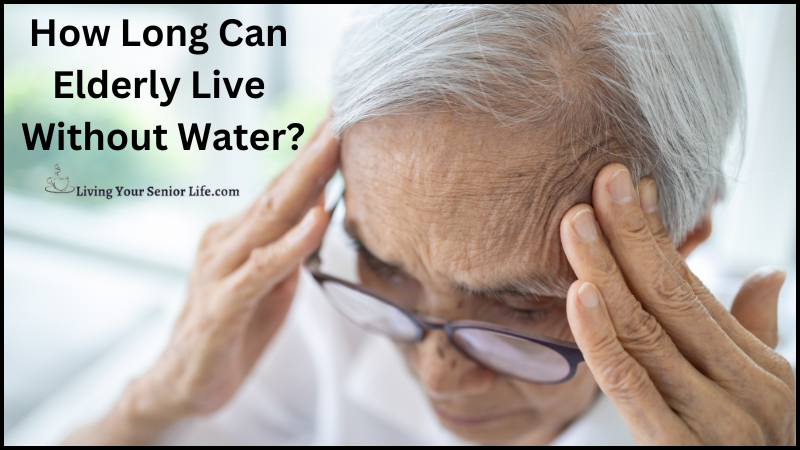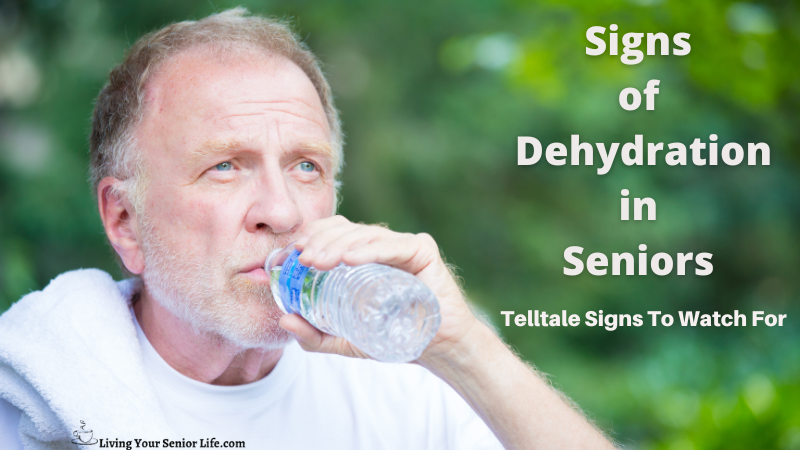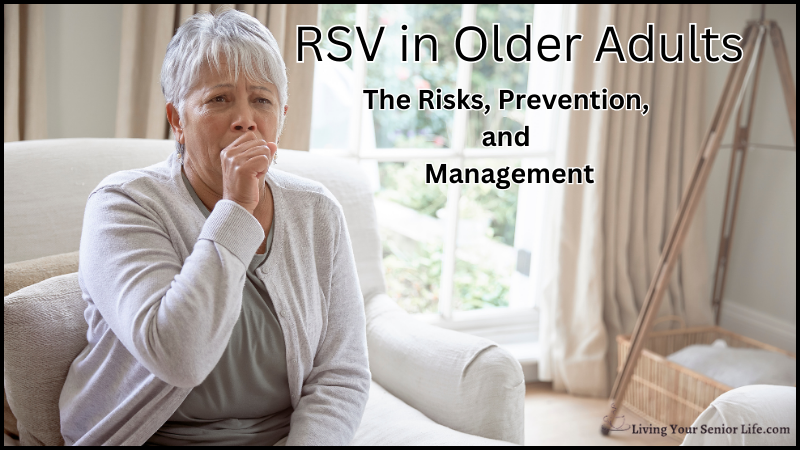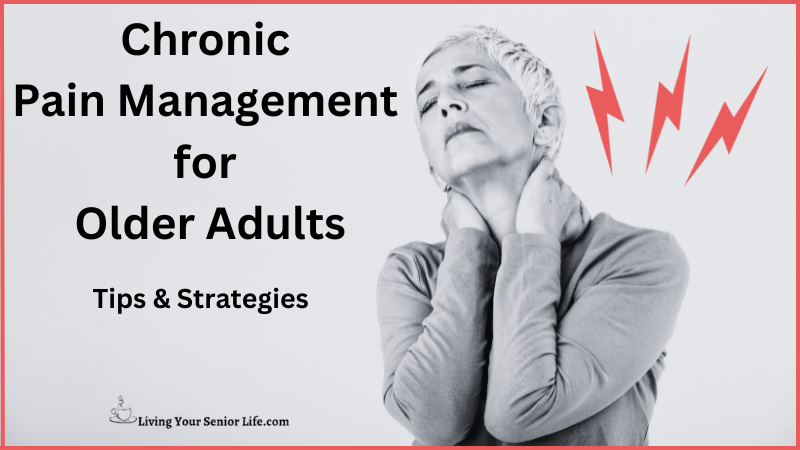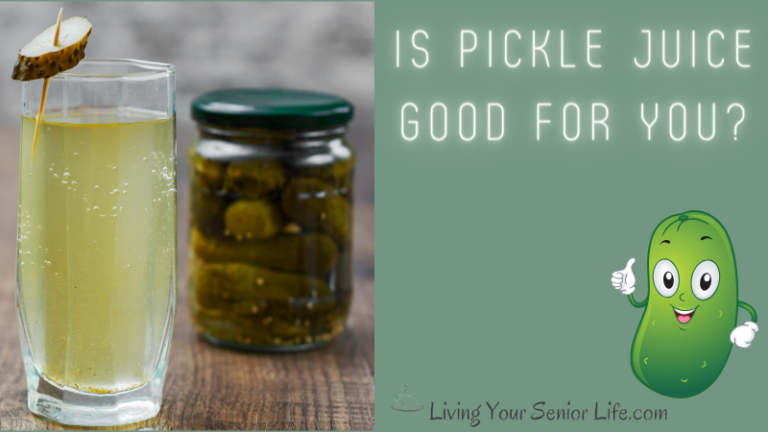How Long Can Elderly Live Without Water? In this article, we’ll explore the answer to this question, as well as, the signs and symptoms of dehydration, and the effects it can have on health conditions. Additionally, we’ll take a look at dehydration and hospice care.
The human body is made up of about 60% water, which is necessary for maintaining fluid balance, blood volume, and body temperature. As people age, their sense of thirst response may decrease, and they may not feel as thirsty as they used to. Additionally, older people may have underlying health conditions that can affect their water intake, such as dementia, cancer, or kidney function. As a result, older adults are at a higher risk of dehydration, especially during hot weather or periods of high activity levels.
Quick Answer: How long can the elderly live without water? In general, a person can survive without water for about three to five days. However, this can vary depending on individual factors such as age, health condition, activity level, and environmental conditions.
Key Takeaways:
- Dehydration is a common issue among older adults, particularly those who are in hospice care or at the end of their lives.
- The human body is made up of about 60% water, which is necessary for maintaining fluid balance, blood volume, and body temperature.
- In hospice care, the goal is to provide comfort and emotional support to patients with life-limiting illnesses, rather than prolonging life with medical treatments.
Understanding Dehydration in the Elderly
Dehydration is a common issue among older adults, and it can have serious consequences if not addressed promptly. In fact, dehydration is one of the leading causes of hospitalization among seniors. This section explores the role of water in the body, factors affecting hydration and signs and symptoms of dehydration
The Role of Water in the Body
Water is a vital component of the human body, making up about 60% of a person’s body weight. It plays a crucial role in bodily functions such as regulating body temperature, transporting nutrients, and removing waste. Additionally, water helps maintain fluid balance and blood volume, which are essential for proper organ function and blood pressure regulation.
Video: How Long Can Elderly Live Without Water?
Factors Affecting Hydration
Several factors can affect a person’s hydration levels. These include:
- Age: As people age, their sense of thirst decreases, making it easier to become dehydrated.
- Overall health: Certain medical conditions, such as kidney disease or urinary tract infections, can increase the risk of dehydration.
- Activity levels: Physical activity and sweating can cause the body to lose water more quickly.
- Medications: Some medications, such as diuretics or laxatives, can increase water loss.
- Diet: Eating foods with high water content, such as fruits and vegetables, can help maintain hydration levels.
- Environmental factors: Hot weather or high altitudes can increase the risk of dehydration.
Survival Without Water
As the human body is made up of 60% water, it is essential to maintain proper fluid balance to ensure normal bodily functions. Dehydration occurs when the body loses more water than it takes in, leading to a lack of fluids that can have serious consequences. This is especially true for older adults, who may be more susceptible to dehydration due to changes in their body’s thirst response and kidney function.
General Survival Estimates
The amount of water a person needs to survive varies depending on their body weight, activity levels, and overall health. In general, a person can survive without water for about three to five days. In rare cases, a person may be able to survive for longer periods without water, such as in the case of hunger strikes or extreme environmental conditions. However, prolonged periods without water can lead to severe dehydration and organ failure, ultimately leading to the end of their life.
Signs and Symptoms of Dehydration
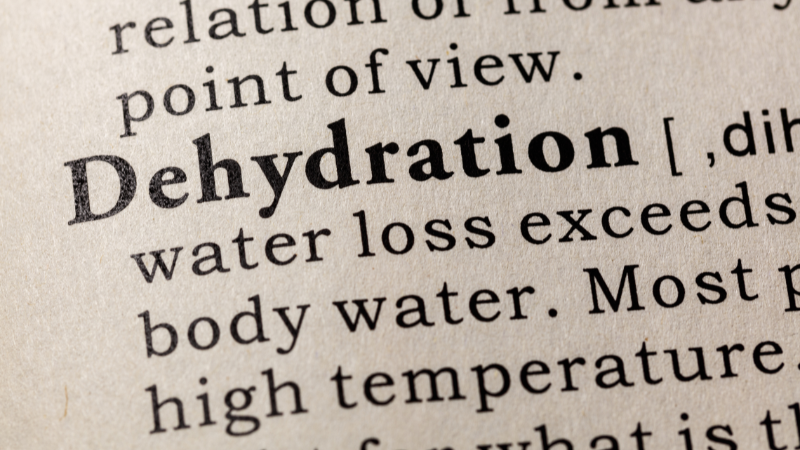
It is important to recognize the symptoms of dehydration. In older adults, symptoms of dehydration may be less noticeable, so it is important to monitor for signs of dehydration, such as changes in body temperature, blood pressure, and urine output.
The symptoms of dehydration can vary depending on the severity of the condition, but some common signs include:
- Dry mouth and throat
- Thirst
- Fatigue
- Dizziness or lightheadedness
- Confusion or irritability
- Headaches
- Dark urine or decreased urine output
- Dry skin or mouth
- Sunken eyes
- Low blood pressure
- Rapid heartbeat
- Seizures or unconsciousness (in severe cases)
If dehydration is suspected, it is important to take action quickly. Sips of water or ice chips can help rehydrate a person, and gentle massage can help stimulate the thirst response. In severe cases of dehydration, medical treatment may be necessary, such as intravenous fluids or artificial nutrition.
Impact of Age and Health Conditions
Dehydration can be especially dangerous for older adults, as their bodies contain less water and their kidneys become less efficient with age. It is important for seniors to stay hydrated to maintain their overall health and prevent complications such as urinary tract infections and organ failure.
Age-Related Changes in Water Metabolism
As people age, their bodies contain less water, making them more susceptible to dehydration. Additionally, the thirst response may be less sensitive in older adults, leading them to drink less water than they need. According to the British Medical Journal, older people may also have a decreased ability to conserve water, which can lead to a higher risk of dehydration.
Chronic Health Conditions and Dehydration Risk
Older adults with chronic health conditions such as dementia and diabetes are at a higher risk of dehydration. These conditions can affect a person’s ability to recognize thirst and regulate fluid intake. Additionally, some medications used to treat these conditions can cause increased water loss through urine.
Older adults who are bedridden or have limited mobility may also be at risk of dehydration due to decreased activity levels. In these cases, healthcare providers may recommend artificial nutrition and hydration, such as feeding tubes or IV fluids, to maintain fluid balance and prevent dehydration.
Complications of Prolonged Dehydration
Prolonged dehydration can lead to several acute and chronic health impacts, as well as emergencies that require immediate intervention.
Acute and Chronic Health Impacts
Dehydration can cause several acute and chronic health impacts that affect the vital organs and bodily functions. In severe cases, dehydration can lead to organ failure, seizures, shock, and even death. Dehydration can also cause confusion, dementia, and other mental performance issues. Patients with terminal illnesses, such as hospice patients, are at a higher risk of dehydration due to their decreased fluid intake and activity levels.
Emergency Situations and Intervention
In emergencies, dehydration can be life-threatening and requires immediate intervention. Patients with severe dehydration may require hospitalization and intravenous fluid therapy to restore their fluid balance and blood volume. In some cases, dehydration can be a symptom of an underlying medical condition that requires medical treatment.
Prevention and Early Detection
To prevent dehydration, it is important to establish daily hydration practices and monitor for signs of dehydration.
Daily Hydration Practices
The best way to prevent dehydration is to ensure that a person’s body is getting enough water. It is recommended that older adults drink at least eight cups of water per day, but this amount may need to be adjusted based on a person’s activity level, weight, and other factors.
In addition to drinking enough water, it is important to monitor salt and caffeine intake, as these substances can increase water loss in the body. It is also important to stay hydrated in hot weather and during periods of physical activity.
Nutrition and Hydration Strategies

Hydration Through Foods
Drinking water is not the only way to stay hydrated. Consuming foods with high water content, such as fruits and vegetables, can also help maintain fluid balance in the body. Fruits like watermelon, strawberries, and oranges, and vegetables like cucumbers, celery, and lettuce, are excellent sources of hydration.
Rehydration Solutions and Techniques
If an older adult is experiencing symptoms of dehydration, it is important to rehydrate them quickly and seek medical advise. Sips of water or other clear fluids like fruit juice or broth can be given to the person. In rare instances, severe dehydration may require hospitalization and intravenous fluids.
Managing Dehydration In Hospice Care
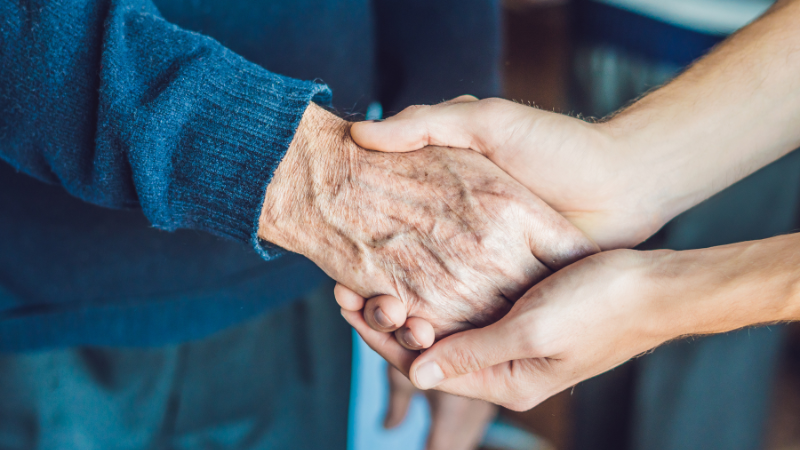
Dehydration is a common issue among older adults, particularly those who are in hospice care or at the end of their lives. Understanding how long elderly people can live without water is an important decision that healthcare providers, hospice teams, and family members must make. Dehydration can lead to a range of complications, including urinary tract infections, kidney disease, and organ failure.
In the end-of-life stage, the goal of hospice care is to maintain the patient’s quality of life and manage symptoms of dehydration, rather than aggressively treating the underlying cause. According to a study by George Washington University, gentle massage, lip balm, ice chips, and sips of water or fruit juice may be used to provide comfort to end-of-life patients who are no longer able to consume enough fluid and food orally.
The decision to provide artificial nutrition and hydration should be based on the patient’s wishes, medical condition, and expected benefits and risks. In cases where the person stops eating or drinking, gentle mouth care, such as ice chips or lip balm, can help keep the mouth moist and comfortable. A gentle massage of the arms or legs can also help stimulate circulation and prevent blood clots.
Frequently Asked Questions
What is the typical duration an elderly person can survive without hydration?
As a general rule, a person can survive without water for about 3 days. However, the duration can vary depending on several factors such as age, weight, overall health status, and how much water an individual body needs. Dehydration can lead to severe health consequences, especially for elderly people.
Can an elderly person sustain life on minimal sips of water, and for how long?
In some cases, an elderly person may be able to sustain life on minimal sips of water for a short period of time. However, this is not a good idea as it can lead to severe dehydration and organ failure. It is important to note that sips of fluid, such as ice chips or fruit juice, may not provide enough fluid to maintain fluid balance and blood volume.
Additional Reading
Conclusion
In conclusion, it is clear that water is essential for the survival and well-being of elderly individuals. Dehydration can have serious consequences and significantly impact their health and longevity. It is crucial for caregivers and family members to be attentive to the hydration needs of the elderly and ensure they have access to an adequate supply of water. By prioritizing proper hydration, we can help elderly individuals live healthier and more fulfilling lives.
Have you or someone you know experienced dehydration? What steps were taken to alleviate the symptoms? Please comment below.
